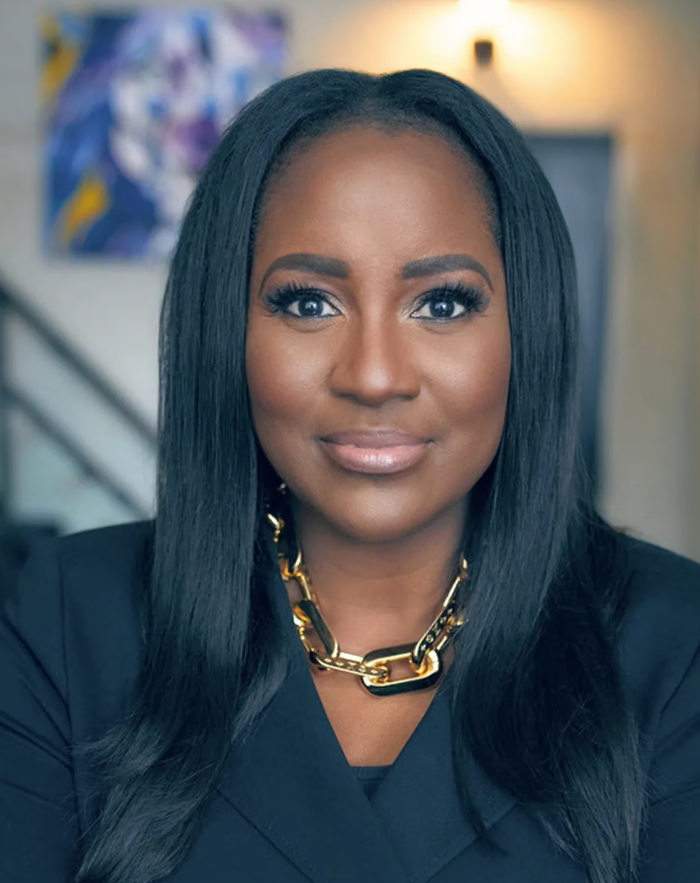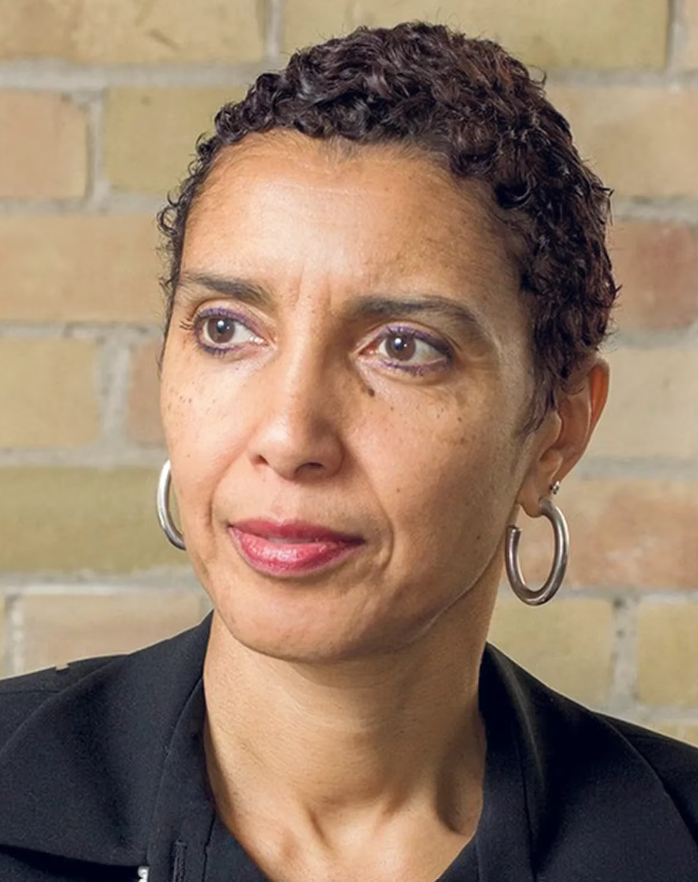Building Black businesses

Nadine Spencer, CEO and president of the Black Business Professional Association (BBPA), works on many fronts to address racism, eliminate barriers and celebrate success of Black entrepreneurs
Nadine Spencer, the CEO and president of the Black Business Professional Association (BBPA) (external link) , became an entrepreneur when she was 12 years old. “I sold cakes in the marketplace,” she explains. “And when that money hit my little hand, I knew I’d found a viable vehicle, an opportunity to build a business and create a future for myself.” Fast forward, Spencer, a recipient of the Harry Jerome award, which recognizes and honours excellence in African Canadian achievement, founded a global marketing communications agency and assumed the leadership of BBPA.
“It’s been a remarkable journey,” says Spencer, who today devotes her efforts towards “charting a path for Black entrepreneurs,” many who have been “left out of corporate Canada because of systemic racism.”
The BBPA is a charitable organization, founded in 1983, committed to advancing Canada’s Black community by addressing equity and delivering programs that support business and professional excellence, education and economic development.
Black entrepreneurs, says Spencer, lack access to networks and capital and face challenges in building their businesses. Succeeding becomes that much harder “if you’re not born into certain circles or areas of privilege. People do business with people they know.”
BBPA has partnered with the Diversity Institute (DI) for many years on research initiatives and programs to advance Black entrepreneurs and leaders. One of these is the Black African and Caribbean Entrepreneurship Leadership (BACEL) (external link) program funded by the Future Skills Centre (FSC) (external link) . The program, explains Spencer, is grounded in previous research on the barriers facing Black entrepreneurs and the skills and supports they need to succeed. The program has defined competencies Black entrepreneurs require and provides free training, networking and mentorship as well as help in accessing other supports.
“So far we have trained over 400 Black entrepreneurs across the country,” reports Spencer. “It’s quite inspiring, and the early evaluation results are really encouraging.”
BACEL offers three connected learning levels, moving from business basics to an intermediate stage with a greater focus on the specifics of industries, finance, marketing and growth, and the final level, which assists business in scaling-up and expanding by exploiting new markets, exporting or doubling down on innovation and operational efficiency.
As a founding member of the new Federation for African Canadian Economics (FACE) (external link) , BBPA worked with DI, FSC and other organizations to develop the innovative “Capital Skills” program. Unlike many other “financial literacy” programs, Capital Skills is focused on a single outcome: how to best help Black, Indigenous and other equity-deserving entrepreneurs secure funding through loans, grants or new business, says Spencer.
“Already we have seen amazing results with at least two participants securing $250,000 loans and many accessing smaller amounts to help grow their business,” Spencer adds. One of them, Brandon Gonez, a Black media icon, was able to get a loan from FACE and use those funds to purchase NOW magazine.
The Canadian Aboriginal and Minority Supplier Council (CAMSC) (external link) is also a proponent of the Capital Skills program.
“We know access to capital has always been an issue,” says Cassandra Dorrington, president and CEO of CAMSC. “But even more important than access to loans is access to customers. Our focus is on helping train participants in how to access procurement opportunities in government or large businesses. There was a gap in that area, and we are testing a new approach to help our diverse suppliers build capacity to secure funding.”
With approximately 155 corporate members, 500 certified suppliers and another 200 or so companies working towards certification, CAMSC is a non-profit centred on “identifying, certifying and linking Indigenous and racialized companies in the supply chain of corporate Canada,” explains Dorrington.
“We are building economic wealth for under-represented groups who have previously been missing at the table,” she adds. “Collaborating with the Diversity Institute and other organizations is important, because together we have a larger collective voice that’s being heard.”
“Building future skills is very important for equity-seeking individuals – and the only way that our community is going to advance. During Black History Month, I look at our history and consider what our future will bring. We’re now setting the foundation for generational wealth for a sustainable future for Black entrepreneurs,” says Spencer.

Cassandra Dorrington, president and CEO of Canadian Aboriginal and Minority Supplier Council (CAMSC) endorses programs that focus on building future skills and economic wealth for under-represented and equity-deserving communities
For Dorrington, Black History Month in Canada is incredibly important. “It’s not just a celebration and acknowledgement of past accomplishments. It is a jumping-off point for how the Canadian environment values and includes persons of African descent as we go forward
“How do we do more to promote inclusion and diversity? I want companies to use this time, not just to tick the box and celebrate, but to think about whether we are doing enough to be inclusive, to bring diversity to the table.
“Let’s be intentional about what that means, not just in February but all year long. Whether they are suppliers or corporations, I’d like organizations to think about doing more,” says Dorrington. “Because I believe we now have a number of the tools at our disposal to make things happen. The will is there and the resources are there. We just have to be intentional.”
Diverse leadership: tone at the top
Data show consistently that Black Canadians are less likely to be employed and are paid less even when they have higher levels of education. The Diversity Institute’s (DI) Diversity Leads report spotlit a stark reality: of 1,600 board members in Canada’s largest corporations, 14 were Black. With the support of the Future Skills Centre (FSC), DI researchers are digging deeper into the experience of senior Black leaders and the brutal reality of overt and systemic racism but also the pathways to success. DI is also promoting the 50 – 30 Challenge, which encourages organizations across sectors to aspire to gender parity (50%) and increased diversity (30%) on boards and/or in senior leadership. To date, 2,000 organizations have joined.
One signatory to the 50 – 30 Challenge is the Canadian Aboriginal and Minority Supplier Council (CAMSC). Promoting diversity is also a priority for CAMSC, says Cassandra Dorrington, CAMSC president and CEO. The 50 – 30 Challenge (external link) “has highlighted the gaps, moved organizations to commit and provided access to new tools to support action,” says Dorrington. “It has encouraged organizations to set clear targets for including diverse people at the table and to follow up with action to achieve those targets,” she adds. Nadine Spencer, CEO of the Black Business Professional Association (BBPA), says representation in leadership is critical because it signals who belongs and provides role models that shape the aspirations of the community. “You cannot change who is at the top of the house, if you do not look at who gets in the door. And ensuring Black people get in the door means investing upsteam in our youth. We also have to be prepared to name anti-Black racism and work with employers and institutions to eliminate barriers and celebrate success.”
This article originally appeared in a Globe and Mail sponsor content feature produced by Randall Anthony Communications. Reprinted with permission. All rights reserved.